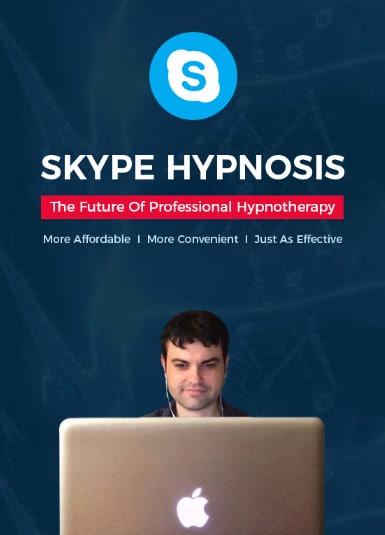Answer: In the past, whenever I get asked that question, I would typically reply with “How long is a piece of string?”.
Of course, I was half-joking, but the response holds value— I would need to know what the issue is to better understand your needs, assess your suitability, and make my recommendation accordingly.
Yes, I’m well aware that price is always a factor in just about anything you buy— but how can you put a price on your health and well-being? What’s your health worth to you? What is it worth to those around you?
In reality, there are many considerations that I must take into account when getting you into a mind-set that will make you change your habits. With weight loss, for example, I need to know about the underlying factors that have been responsible for your weight gain, which is very often psychological.
I can’t give a fixed price if I don’t have all the information about the problem. I need to first carry out an analysis of your particular problem and then decide on an effective treatment, tailored just for you. However, with quitting smoking, I have provided some cost options based on your level of dependency.
In general, my rates are offered on solution finding and problem solving. This is achieved by a range of sessions, typically between 3 to 5. However, it could be as many as 7 sessions in some cases, in others it may be less.
Why is there so much variation?
Not all personal problems are created equally. Every one of us is different in the way we think, act, and live our lives.
We might share some attributes but we are fundamentally unique individuals with defined needs and desires that have been shaped over many years. That’s why it’s important we have a personalized phone consultation at the start, free of cost, so I can determine your exact wishes and expectations.
I have earned the trust of my clients because my candid approach does provide honest, reasonable and realistic expectations. I will be frank with you and tell you if your problem is one that I can assist with resolving. I do not want to offer false hope. I do, however, want you to realize that you have it within you to overcome virtually any problem.
Together, we can do this. I’ll be with you every step of the way, but it will require a little effort and acceptance on your part.
As a heads up, I only work with a selective number of clients in any given week. More specifically, I limit my practice to just 4 clients per day between the US, Australia & Europe.
(Yes, my Australian hypnosis coaching practice is still operating and thriving. See link HERE for more.)
Why limit your clients?
Truthfully, it’s because I want to be able to focus my time on your issues and help you get the best results possible. I might not be able to do so effectively if I had too many clients. I also have to fully prepare before each session by reviewing the previous session’s notes to better help me understand the scope and nature of the underlying problem.
I prefer to work with individuals who are motivated enough to actively participate in accomplishing their goals. Can you visualize your own success in quitting your smoking habit or losing weight? That’s the only motivation you will need to help uncover the solution to your problem. It takes time, and I limit my client intake so ensure that none of it is wasted. I’m happy to say that my strategy has paid off.
With over 420 Google reviews worldwide, 100+ Facebook reviews (not including more than 300 positive comments!), my tactics have been proven to be highly effective and produce consistent results.
On your part, all it takes is an open mind and a willingness to explore whether this therapy will be right for you.
An initial consultation can usually quickly determine whether my method (and my services) will work for you. The question of fees very rarely comes into the equation. However, I believe they are both reasonable, respectable and fair. It’s best to remember that my hypnosis services are results driven.
After we have met and you agree to begin on a program, I will ensure your therapy is customized to suit your specific needs. You are only required to move onto the next level if you truly feel that you need more sessions; there’s no pressure and no obligation.
I should also mention that any of my 3-5 session programs do include up to FOUR of my hypnosis meditation mp3s. These are taken directly from my highly praised ‘Secret to a Successful Life Skype Hypnosis Coaching Program’. (SEE TESTIMONIALS HERE)
You will also have access to my online videos explaining how the mind works with my own preferred practical approach to psychology along with other videos on focus, meditation, and general relaxation.
*Side note: Depending on the circumstances, I may include 5 Mp3s (on any 4-5 session program) if the client prefers to unconsciously absorb the insights between sessions through listening to these audios.
So, in wrapping this answer into a more concise form: my rates and fees are very affordable and currently much lower than industry average. If you were to carry out a comparison of my prices, with those of similar programs offered by hypnotherapy clinics, you will find quite a big difference.
Not only that, I do offer much more. As mentioned previously, with my multiple sessions (3-5), I always give my clients a FREE bonus triple set of valuable hypnotic meditations. These Mp3s provide supplementary support and helps them stay focused between sessions. This Mp3s alone are valued at $25 each and taken directly from my highly-praised ‘Secret to a Successful Life Skype Hypnosis Coaching Program’. Depending on individual circumstances, I may include up to 5 Mp3s with any 4-5 hypnosis phone session program.
The main difference between my service and that offered by a hypnotherapy clinic is that my treatment is delivered directly to you over the mobile phone, or via a Skype and Zoom connection. Now because I am able to offer you the very same quality of service remotely, I don’t need to operate from a clinic.
Instead, I work from my home, which saves thousands of dollars on maintaining a purpose-built building in Manhattan.
Also:
- I don’t have to travel to work, so I have zero traveling expenses.
- My home office is safe, secured, and easy to get to if need be.
- I don’t charge any additional local or state taxes either— so it doesn’t matter where in the US you are, you will only ever pay my set fees!
I can pass those savings on to you. Not only do you benefit from getting the same quality service at much lower pricing packages, but you also benefit by not having to travel to a clinic to keep a strict appointment. You save time and stress in traveling, and you’ll be much more relaxed in your own home rather than feeling nervous in unfamiliar clinical surroundings.
Finally, your sessions can be scheduled for a time that best suits you, allowing you to fit in your sessions around your other daily routines. Because of a more relaxed delivery of my service and being in familiar surroundings, very often you will need fewer sessions than you might do if you were to attend a city clinic.
Ultimately, it’s results that truly matter, not the cost of treatment.
Because how can you honestly put a price on your mental health and emotional well-being?
I do hope this explains how I structure my pricing with working from home. Lower overheads translates to greater savings in your pocket!
My pricing packages have always much lower, despite the fact that I and other hypnotists may offer similar programs while holding equally valued qualifications.
Also, here’s another major benefit to my hypnosis tele-session approach… there’s no need to get tested for Coronavirus in order to have a session with me. 🙂
Now with all that said, if you’re still insistent in knowing my program fees, please click HERE to understand the complete breakdown of my hypnosis program pricing.
Just click HERE to find out more and discover my program fees.
Many thanks!





